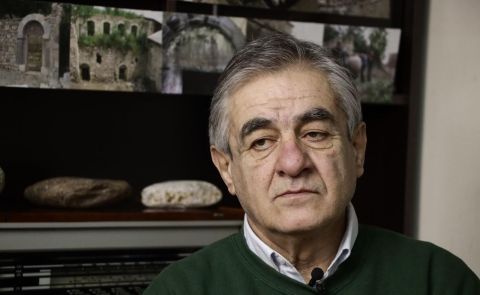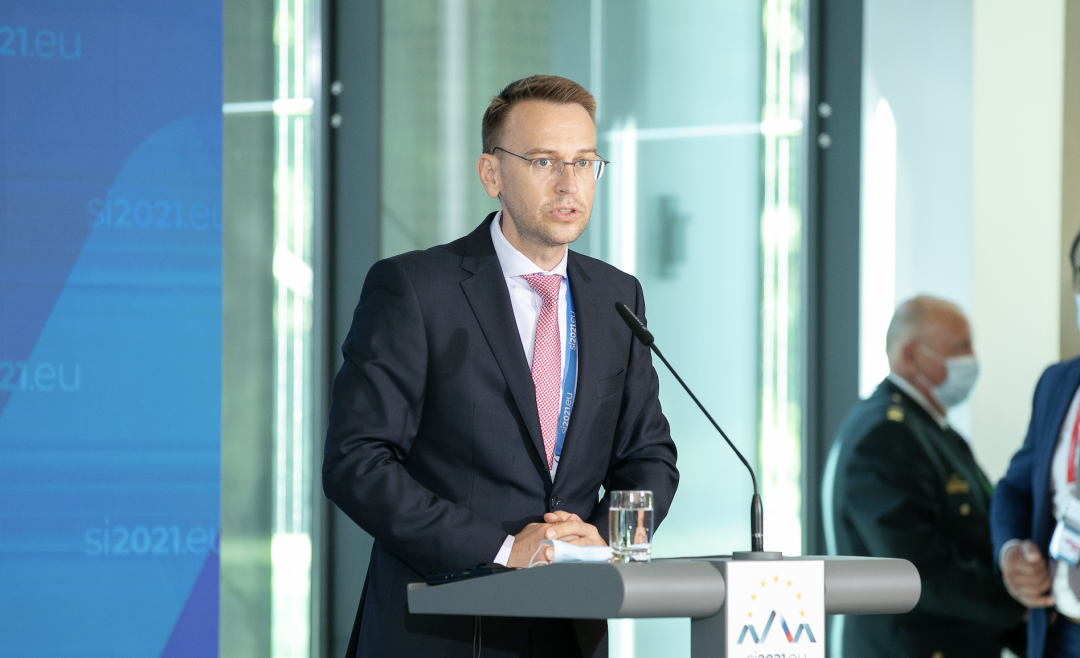
Peter Stano: We Hope Border Delimitation Proceeds Swiftly

Baku and Yerevan are discussing a territorial delimitation agreement, and the negotiations are taking place mainly in a one-on-one bilateral setting. As in the past, the process is tumultuous. The evacuation of villages in Lori and Tavush in Armenia triggered a significant political backlash. The question of how and under what conditions Azerbaijan will gain access to its exclave in Nakhchivan remains a thorny issue that some fear could lead to a new standoff. To ease the pressure, the EU has aspired to play a facilitating role.
An active EU observer mission patrols southern Armenia. In the event of a peace agreement, Brussels has offered to invest in regional infrastructure to bolster the perceived "peace dividends". The extension of access to the Single Market and even freedom of movement remains on the table. Caucasus Watch sought an update on the EU's engagement in the region by reaching out to the EU's Spokesperson on Foreign Affairs and Security Policy, Peter Stano.
Is the EU willing to invest in the Armenian "Crossroads of Peace" initiative? What would be the scope and conditions for such assistance?
Concluding a peace agreement between Armenia and Azerbaijan and opening Armenian borders with Türkiye and Azerbaijan is essential to unlocking the region's full economic potential and bringing concrete benefits of reconciliation to people on all sides.
In this context, the EU welcomes any initiative to enhance the region's connectivity, trade, and security, including the "Crossroads of Peace" initiative. We are ready to deliver dividends of peace once a peace treaty is finalised, namely through support in confidence-building measures to investments in cross-border connectivity projects, as outlined in the initiative.
As far as it is possible to deduce, what has been the main contribution of the EU Mission in Armenia?
The Mission has been able to regularly patrol along the Armenian border and interact with conflict-affected communities during human security patrols. Through its regular presence and reporting, the Mission has contributed to an overall increased sense of security and safety among the population, especially those living in border areas. This is the feedback from local residents with whom EUM Armenia interacts daily. We have also witnessed a decreased number of incidents in the border regions.
The presence of the EU monitoring experts in the border regions of Armenia enables the EU to engage directly with the conflict-affected population on the Armenian side of the internationally recognised border and better understand their security situation and needs. This information and the observations collected on the daily patrols are valuable elements to support EU decision-making and for the EU to contribute towards peace in the region and Armenia.
There are talks about a Visa Liberalisation agreement between Armenia and the EU. To this end, what are the key conditionalities Armenia has to address? (provided by DG HOME)
The EU is currently discussing possibly initiating a visa liberalisation dialogue with Armenia. A visa liberalisation dialogue is a reform-driven process during which the EU's partner country progressively addresses possible migration, border management and asylum issues, among others. At the end of the process, the EU can decide to establish a visa-free regime with the partner country. Launching the visa liberalisation dialogue requires the agreement of all EU Member States.
Over the last year, there has been a resolute departure from internationally facilitated talks between Yerevan and Baku and a shift towards exclusively bilateral negotiations. Is there any sign that Brussels may reengage in the ongoing process?
Since the 44-day war, based on the wish expressed by both sides, the EU has been deeply involved as a mediator in the peace and normalisation process between Armenia and Azerbaijan through well-known efforts put forward by the President of the European Council and the EU Special Representative.
The EU has been closely engaged with both countries at the highest level through the "Brussels process", initiated in 2021. The latter included a total of six trilateral summit meetings between December 2021 and July 2023. In addition, high-level meetings involving President Macron and Chancellor Scholz took place in Prague in October 2022 and Chișinău in June 2023. Over the last months, we have witnessed more parties' engagement on a bilateral track.
Nevertheless, the EU, in particular via its Special Representative, continues its efforts to further advance Armenia-Azerbaijan normalisation on the draft bilateral peace treaty, connectivity issues, border delimitation/demarcation and humanitarian affairs.
The pursuit of sustainable peace in the region, based on well-known principles such as mutual recognition of territorial integrity and respect for internationally recognised borders based on the 1991 Almaty Declaration, remains a priority for the EU. We discuss these issues bilaterally with both countries, for instance, at the EU-Armenia Partnership Committee or the EU-Azerbaijan Political and Security Dialogue, held in June 2024.
Ongoing diplomatic negotiations between Armenia and Azerbaijan include a process of border demarcation. What is the broader European significance of this diplomatic precedent?
Progress on border delimitation and demarcation can help pave the way for closer bilateral relations and cooperation between the two countries. It can also play a decisive role in enhancing the region's security and stability. The South Caucasus is a critical gateway between Europe and Asia; enhanced security and stability in the region will, therefore, also have benefits for broader European and global security, including when it comes to energy transit routes.
An agreement on the border delimitation and demarcation between Armenia and Azerbaijan, in particular if part of a broader normalisation process, will help unlock other important developments, such as domestic reforms and enhanced trade, infrastructure development, and people-to-people contacts in the region.
The EU commends the joint work done by the Deputy Prime Ministers of Armenia and Azerbaijan and their teams in the framework of the border commissions. We hope that the first section on the Tavush-Qazax portion of the state border delimited and demarcated over the past few months will be swiftly continued and based on the 1991 Almaty Declaration and other relevant documents.
Interview conducted by Ilya Roubanis
See Also


Irina Mamulashvili: Electoral Interference is a Playbook, not a Recipe

Giorgi Gakharia: The EU Should Engage Georgia Despite Its Democratic Backsliding

Peace or Capitulation? Shahverdyan on Armenia-Azerbaijan Agreement and the Nagorno-Karabakh Crisis

Ali Mousavi Khalkhali: Iran Will Avoid Conflict in the Caucasus

